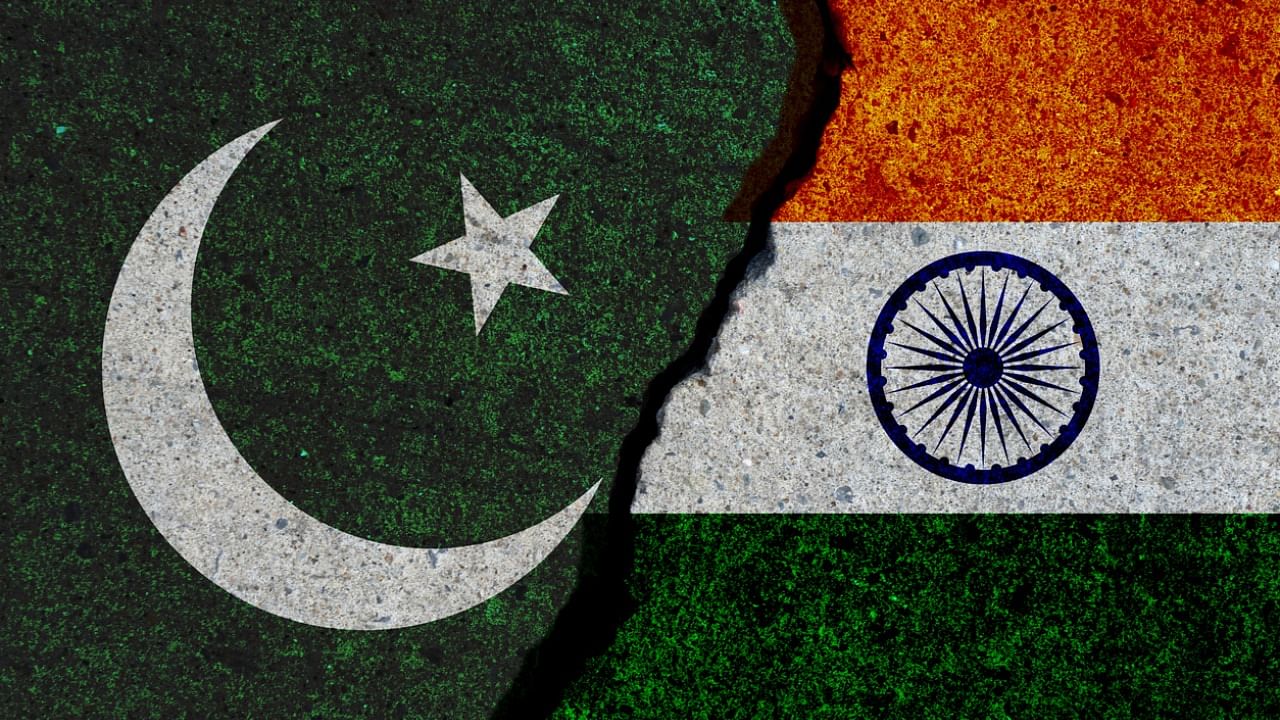
Pakistan Prime Minister Imran Khan’s recent “sermon”, recommending full purdah for women to save them from male lust has attracted savage criticism. Imran Khan blamed the way women dressed as the cause for increased sexual assault and rape in society. Social media is awash with caustic comments and memes making fun of him.
Slamming his puerile comments, his former wife, Jemina Goldsmith, said that Imran Khan, during his playboy days in Britain always said that purdah should be put on men’s eyes rather than cover up women. Jemina quoted from the Quran: "Say to the believing men that they restrain their eyes and guard their private parts. The onus is on men" [Quran 24:31]. The former playboy-turned-religious conservative is now married to his third wife, a fully burkah-clad woman who is some kind of a religious mystic-cum-soothsayer.
Prime Minister Narendra Modi had also sent messages of congratulations on Pakistan’s National Day and a get-well message to his Pakistani counterpart on his Covid-19 infection. In response, Khan expressed his hope for a “result-oriented” dialogue.
The aborted decision to import cotton and sugar from India raised hopes momentarily. Imran Khan, as commerce minister, approved the import and send it for Cabinet approval, where Imran Khan as PM, in consultation with his Cabinet, rejected the decision. Pakistan has now issued a global tender for 50,000 tonnes of sugar to be imported.
The tender stipulates that the sugar must not be from “banned” countries like India and Israel. India is sitting on a stockpile of sugar and could have exported it at a price of around $400 per tonne via the land route. Pakistan is likely to pay around $550 or more from any other source. Pakistan will get its sugar but will pay a higher cost and the ordinary consumer will suffer.
When I served as India’s last Consul-General in Karachi, leading businessmen told me quite openly that they imported Indian machinery and goods from India via Dubai, because these items were not on the approved list. Such imports were shown as made in other countries.
I also discovered that most people in Pakistan yearn for normal relations with India and remain keen on visiting India. Bollywood remains the staple of movie watchers and other cultural bonds remain reasonably vibrant. No amount of Islamist indoctrination and projecting India as the enemy, has erased these cultural bonds, except among Islamist extremists, terrorist groups and the defence forces.
In Karachi, I was often asked by second generation “Mohajirs”, born in Pakistan, whether they could regain their Indian nationality because their parents were Indians. Before it was ordered closed in 1995, India’s Karachi Consulate issued the maximum number of visas.
Pakistan’s policy somersault boils down to the assessment that the military establishment is divided. Imran Khan and the ministers who opposed import relaxation are mere pawns in the policy driven by the “deep state”. Pakistan is caught in the pincer of economic crisis and geo-political changes that are causing discomfort.
US President Joe Biden has not spoken to Khan and only his the Secretary of State has had a conversation with Pakistan’s foreign minister which focussed on the release of the murderer of American journalist Daniel Pearl by the Supreme Court.
Biden has also not cared to invite Pakistan to the 40-nation Climate Summit that he will be hosting, though he has invited Bangladesh Prime Minister Sheikh Hasina. Pakistan becoming a vassal state of China is also worrying many patriotic Pakistanis. Recently the UK has added Pakistan to its list of 21 countries of “concern” for money-laundering and terror financing.
Pakistan’s parlous economic condition has been made worse by the Chinese-origin Covid pandemic. GDP growth has fallen from 5.6 per cent to -0.4 per cent and national debt has risen to $115 billion, more than 85 per cent of GDP. Pakistan is still on the Grey List of Financial Action Task Force (FATF), a global group to combat money laundering. Bailouts by traditional rich Gulf countries are no longer available and the only sources left are China and the International Monetary Fund (IMF).
Both apply conditionalities of different kinds; China uses debt-trap diplomacy and the IMF nibbles away at welfare measures, subsidies and raises taxes. China has also coerced Pakistan to grant permission to a Chinese company to set up a beer factory for Chinese residents at Gwadar port area, notwithstanding Pakistan’s Islamist rhetoric.
Unarguably, a working relationship with Pakistan should be a desired objective for India. After Kashmir’s status was changed, Pakistan had taken the high road as an aggrieved party. It downgraded diplomatic representation, banned trade with India and went into a sulk mode, demanding reversal of steps taken by India on Kashmir. Its effort to drum up international support came a cropper.
Realization has now dawned on Pakistan that its tantrums on Kashmir will not lead to any change in India’s policy. Meanwhile, Pakistan’s policy of keeping the LoC active, pushing in terrorists, weapons and keeping Kashmir on the boil have paid no dividends and only led to punishing retaliatory strikes by India. The drain on resources, for maintaining the hostile posture along the LoC must have also contributed to Pakistan’s decision to opt for a ceasefire.
(The author is a former Ambassador and Secretary in MEA; he was the last Indian Consul-General in Karachi; a founder Director of DeepStrat, a think tank, he is a Visiting Fellow at ORF, Delhi)